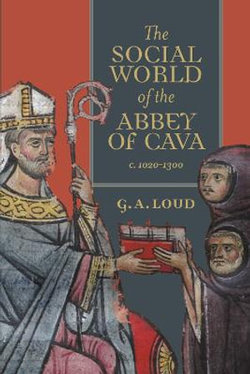The Benedictine abbey of Holy Trinity, Cava, has had a continuous existence since its foundation almost exactly a thousand years ago. From its modest beginnings, it developed during the late eleventh and early twelfth centuries into one of the wealthiest and most influential monasteries in southern Italy.
This path-breaking study, based on many years research into the, largely unpublished, charters of Cava, begins by examining the growth of the abbey's congregation and property, and its struggle subsequently to defend its interests during the troubled thirteenth century. But, in addition, it uses the extensive evidence available to study its benefactors and dependents, administration and economy, and through this material to analyse the social and economic structures of the principality of Salerno. There is also a re-evaluation of the problem of forgery, practised on a large scale at Cava during the thirteenth century, a factor which has complicated and discouraged previous study of this important institution.
A major advance both in the study of the south Italian Church and of the medieval Mezzogiorno during the central Middle Ages, the volume presents a vivid and detailed picture of local society and its workings, and of the families and individuals who had dealings with the abbey.




Share This Book: